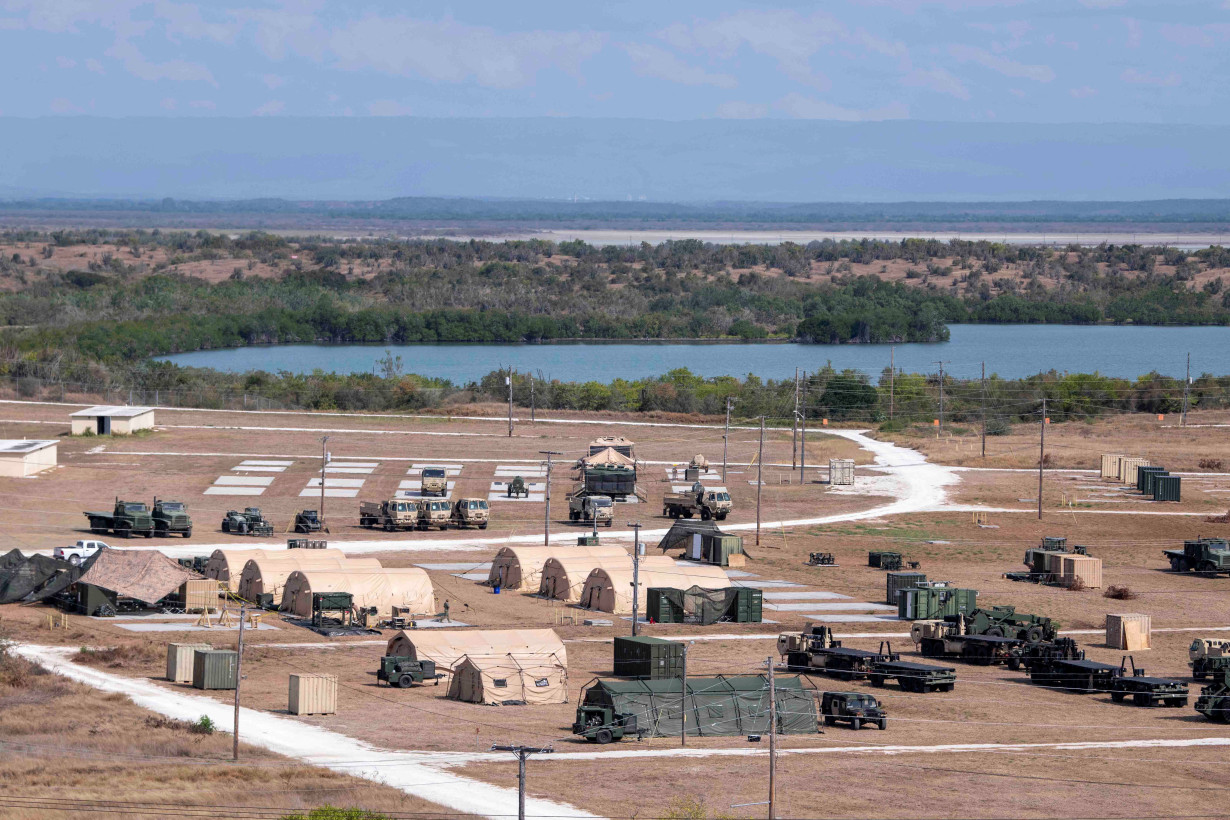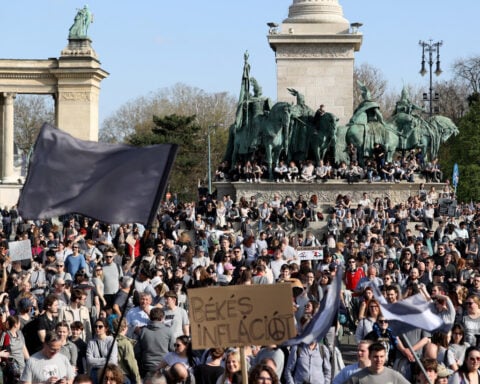By Nate Raymond
BOSTON (Reuters) -A U.S. appeals court on Monday declined to lift an order temporarily blocking the Trump administration from deporting people to countries the government did not previously raise without first allowing individuals to show they face risk of persecution or torture there.
A three-judge panel of the Boston-based 1st U.S. Circuit Court of Appeals rejected a request by President Donald Trump's administration to put on hold a nationwide temporary restraining order issued by a judge on March 28.
The order has hobbled the government's ability to fast-track deporting thousands of migrants who cannot be sent to their origin countries, in some cases because the people have legal protections against such a move.
In arguing for his order to be lifted, the U.S. Department of Justice said that U.S. District Judge Brian Murphy "may have irreparably harmed the executive's ability to negotiate the return of aliens to countries of which they are not a citizen."
But the 1st Circuit panel said such temporary orders generally cannot be appealed, unlike longer-term preliminary injunctions. Murphy is set to consider whether to issue such an injunction at a Thursday hearing.
The U.S. Department of Homeland Security did not respond to a request for comment.
Immigrant rights groups sued last month to prevent the administration from deporting migrants with final orders of removal to countries that were not previously raised in their immigration proceedings.
Their lawsuit, filed on behalf of a group of migrants, took aim at a U.S. Immigration and Customs Enforcement policy designed to fast-track deportations of thousands of migrants who had been released from detention.
The migrants' lawyers argued that the policy could send people to third countries where they risked persecution, torture or death without affording them due process.
Murphy, an appointee of Trump's Democratic predecessor Joe Biden, concluded on March 28 that the plaintiffs had established a likelihood of being able to show that the administration's practice violated their due process rights.
The judge, in a subsequent written version of his decision, said the administration had shown no concern that without a court order, deportations in violation of the Convention Against Torture could regularly and immediately occur.
While the appeal was pending, the Department of Homeland Security issued new guidance providing that, before a migrant can be deported to a third country, that country needed to state that it had provided diplomatic assurances that migrants would not be persecuted or tortured.
The Justice Department has asked Murphy to advise whether he would dissolve his restraining order in light of the guidance. But lawyers for the plaintiffs said it does not provide adequate safeguards for migrants from torture.
(Reporting by Nate Raymond in Boston; Additional reporting by Jack Queen in New York, Editing by Alexia Garamfalvi, Richard Chang and Cynthia Osterman)

 Trump has begun another trade war. Here's a timeline of how we got here
Trump has begun another trade war. Here's a timeline of how we got here
 Canada's leader laments lost friendship with US in town that sheltered stranded Americans after 9/11
Canada's leader laments lost friendship with US in town that sheltered stranded Americans after 9/11
 Chinese EV giant BYD's fourth-quarter profit leaps 73%
Chinese EV giant BYD's fourth-quarter profit leaps 73%
 You're an American in another land? Prepare to talk about the why and how of Trump 2.0
You're an American in another land? Prepare to talk about the why and how of Trump 2.0
 Chalk talk: Star power, top teams and No. 5 seeds headline the women's March Madness Sweet 16
Chalk talk: Star power, top teams and No. 5 seeds headline the women's March Madness Sweet 16
 Purdue returns to Sweet 16 with 76-62 win over McNeese in March Madness
Purdue returns to Sweet 16 with 76-62 win over McNeese in March Madness







